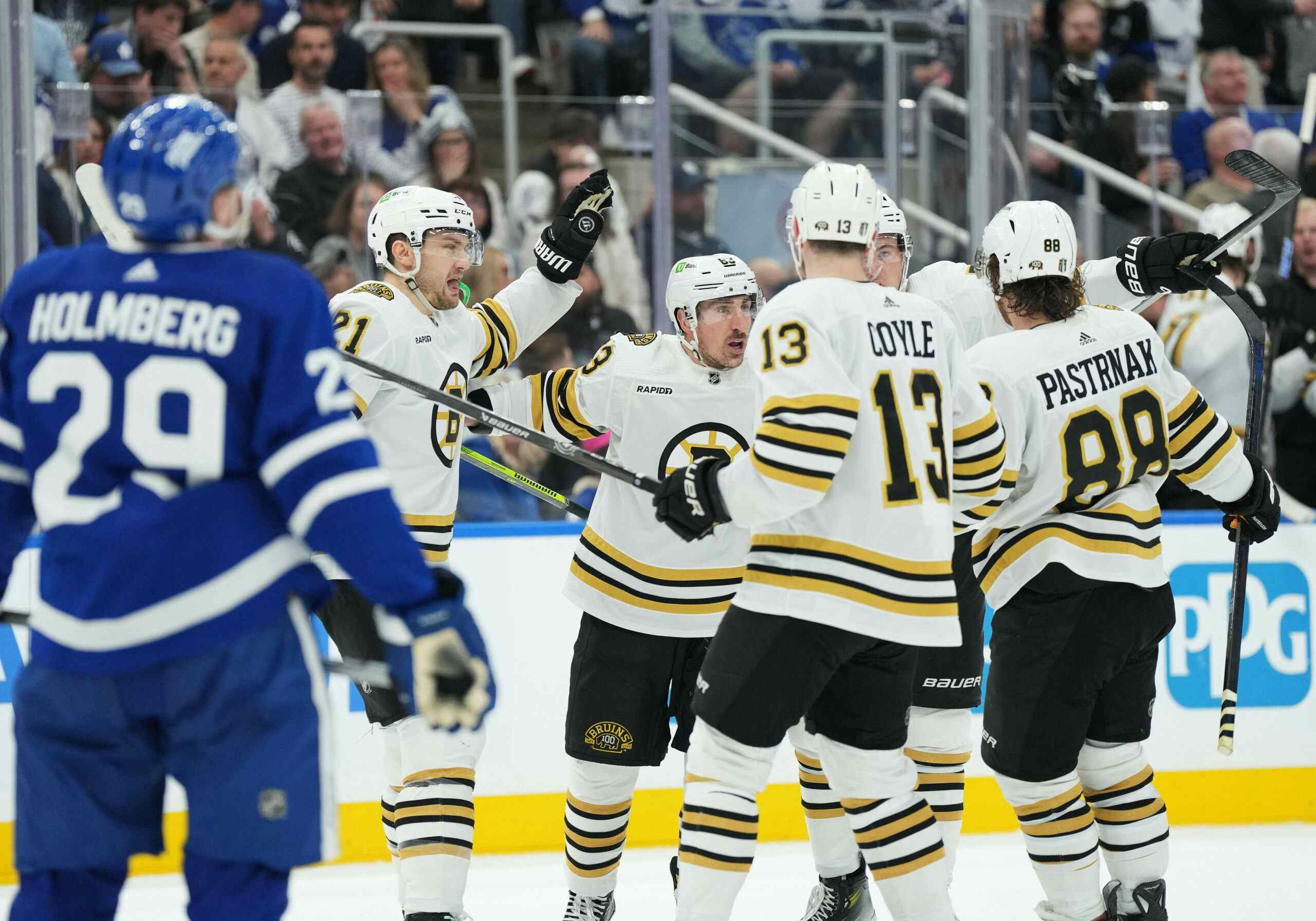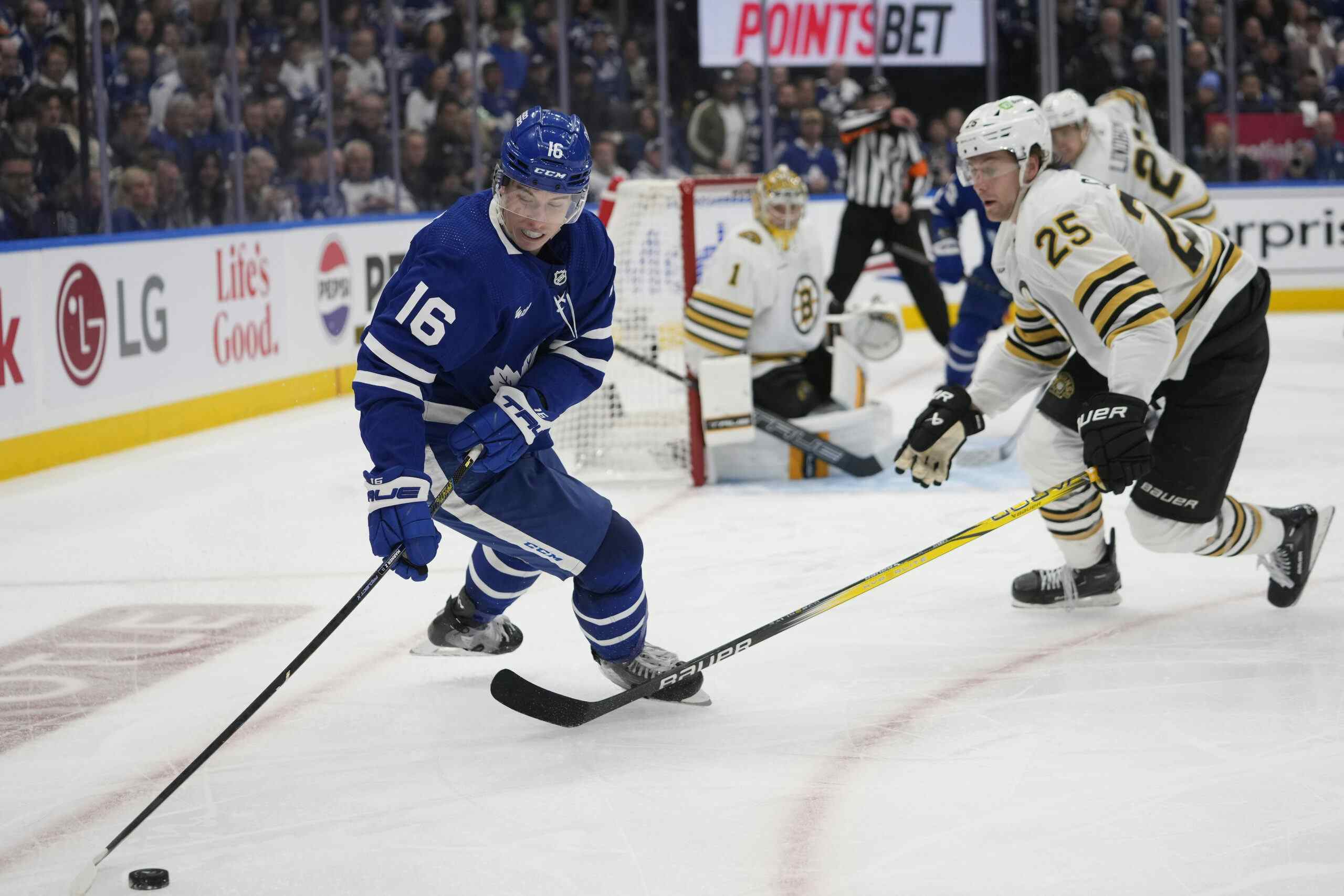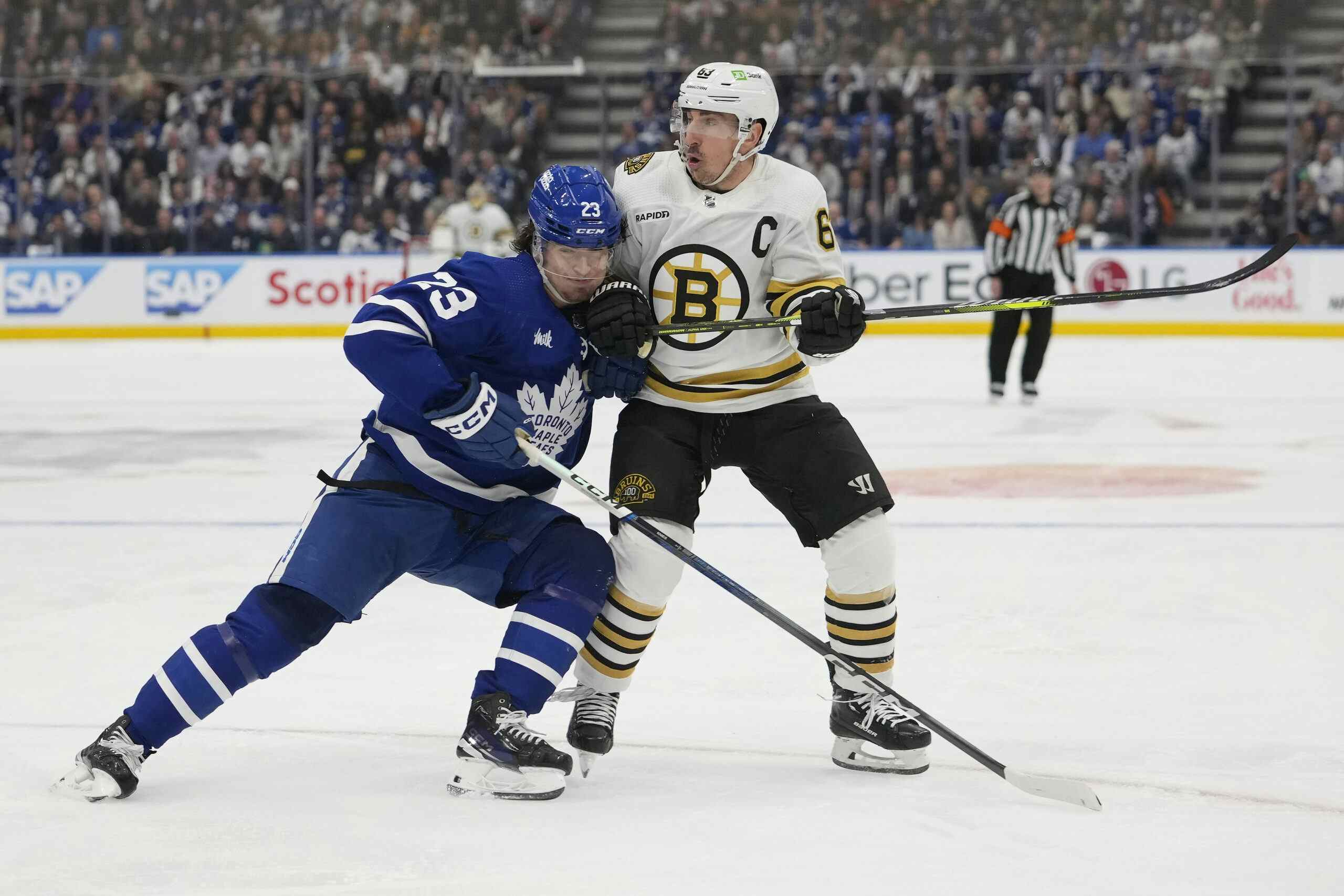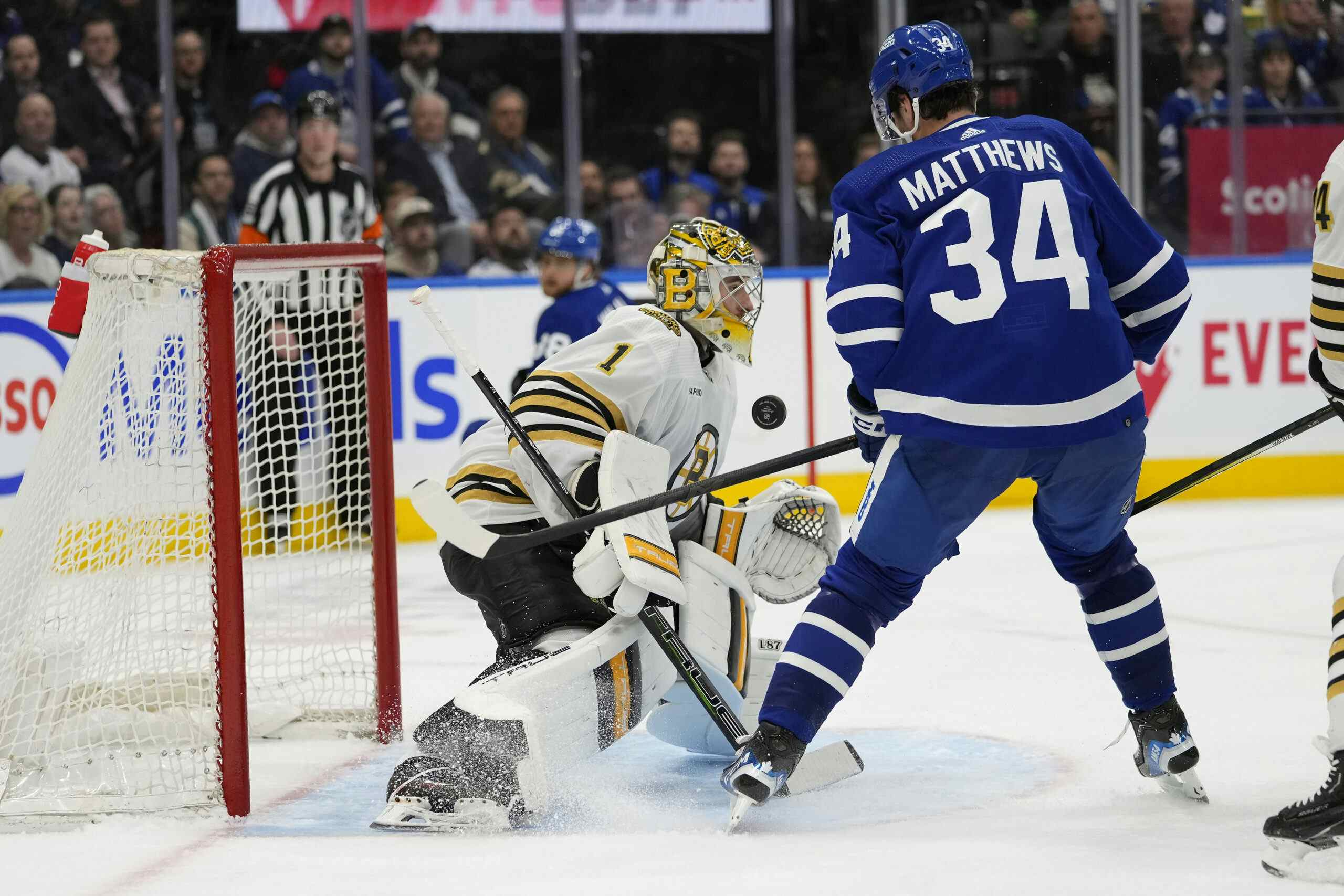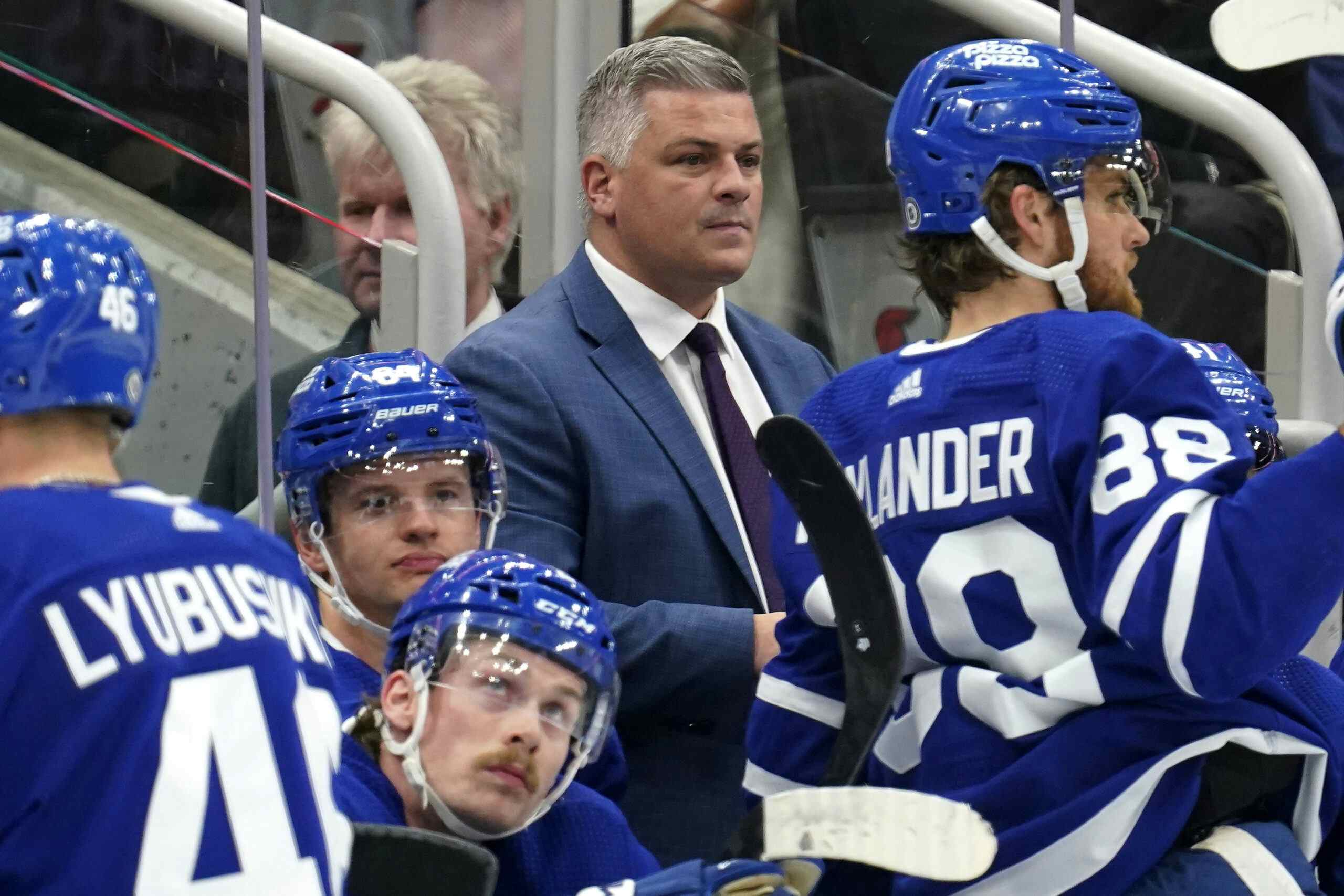Why the Jack Adams Award is Mike Babcock’s to lose
 <
<Photo Credit: John E. Sokolowski/USA TODAY SPORTS
Every year, a panel of voters scribbles on a ballot and decides, in their infinite wisdom, who the best coach in the National Hockey League was for the season that just concluded. The winner of those ballots picks up the Jack Adams Award, which basically guarantees them a job in pro hockey as long as they want one. Often, their choice creates a ton of debate, due to the recent history of picking whoever coached the team that made the biggest standings leap.
Now, the season hasn’t started yet, and I don’t think it matters to him all that much, but it’s hard to imagine a scenario where the ballots spit out a winner other than Toronto Maple Leafs head coach Mike Babcock. Here’s my reasoning:
The Press Tour
The Jack Adams Award is a very prestigious trophy, which has a voting process that isn’t taken lightly. The award is decided on by the National Hockey League Broadcasters Association, who get to watch the games in person and decide using the expertise gained from seeing all the teams in person. Of course, their opinions can’t be swayed by their peers and the nature of the industry, as they are impartial, right?
I’m not sold. Remember last year, when Erik Karlsson was an absurdly elite possession defenceman, finished 4th in NHL scoring despite playing from the point, and instead of coming out of the NHL Awards with the multiple trophies he probably deserved, went completely empty handed and didn’t even win the Norris Trophy? Instead, it went to Drew Doughty, who is still one of the league’s best, but wasn’t close to as effective at keeping the puck out of his own zone, and produced at about the same rate as Steve Ott.
You know what helped the Doughty case? Well, the Norris is voted on by the Professional Hockey Writer’s Association, and one of its highest profile members made it publicly clear where his opinion stood very early in the season.
“Well, because that’s what you want. I mean, I think Karlsson is by far the most dynamic offensive player on defense in the league. My opinion. But I think Doughty is a more complete player. He doesn’t have Karlsson’s offensive genius. I think Subban has become incredibly better in his own zone, and I think he’s a better defender than Karlsson. But I also think Karlsson is a bigger game-breaker than Subban. So it’s hard to pinpoint the question, because I think they all bring different elements to the table.”
That’s the tip of the iceberg, but LeBrun, who follows the Kings intently, was in Doughty’s corner more than he’s ever been this year; at least the third in which he has stated that he believed him to be the deserving Norris winner (2010 and 2015 being the others, as far as public knowledge).
That’s not to say that Lebrun was personally manipulating the vote or spreading a form of propaganda. I understand the arguments for Doughty as the league’s best defenceman, even if I disagree with them, and believe that Pierre’s intent was nothing but positive. But there’s no doubt that he’s a major and respected name in this industry, and when someone puts their neck on the line with such confidence in an opinion, it has the capacity to sway the public opinion.
Now, you might be wondering what this has to do with Babcock. The main point of the LeBrun/Doughty example is to give an example of a hype train rolling early being just as valuable as the actual merit of the winner, and that’s something that the Leafs coach has going for him already. As head coach of Team Canada at the World Cup of Hockey, who have cruise controlled their way through the tournament as they enter the finals today, a focal point of the narrative has been how clinical his system is.
Despite Canada’s historically high level of talent, they’ve found their success through playing a straight-forward, simple, possession-vacuuming zone establishment -> cycle -> perimeter shot -> high danger rebound game, one that we saw Babcock use in Detroit and one that he used in Toronto last year. Some are criticizing Canada for taking the fun out of the game, but the acknowledgement is that Babcock has found a way to maximize his odds at victory with an already weighted coin. The tournament takes a coach who ran a 30th place team last year and restores his pedigree as arguably the best in the business before his NHL team plays their first game of the year.
This ensures that Babcock will be in the minds of broadcasters across the league right from the start. If you add the fact that the Leafs have the bulk of their games broadcast nationally, and that the industry professionals with the highest clout will be the ones speaking of the team the most frequently, and the potential for a subconscious bias being delivered by people of influence is astonishing. If Babcock deserves it, the hype train will come early and it’ll be insufferable to anyone outside of Toronto. If he doesn’t deserve it, he’ll still have a chance because he’ll be on the tip of everybody’s tongues.
The Numbers Lie, In His Favour
The other thing that needs to be kept in mind is that, even though Babcock might be one of the most ruthlessly effective coaches of our generation, you don’t necessarily have to be a great coach to win the Jack Adams Award. Your team just has to be luckier than they were the previous year. Let’s take a glance at how the winners in the fancy stat era improved their teams from the year before their trophy acquisition:

The teams of these winners tend to improve significantly in the standings, Dan Bylsma and Paul MacLean notwithstanding. The average winner sees their point totals go up by 20; remove those two, and you see an average increase of 28. But there isn’t a lot of change in their control of the game; only MacLean and Dave Tippett gained their teams more than a 2% increase of Score-Adjusted Corsi-For Percentage. Tippett shot his team up by over 7%, making him a very deserving winner, but the bulk of coaches saw their team perform about the same from a possession standpoint. In the cases of Bob Hartley and Barry Trotz, they actually saw minor declines.
What seems to matter more is puck luck. Six of the last 8 winners have had Top-10 even strength goaltending in the league, while four of them started off with Bottom-10 netminders the year before and all but Julien and Trotz had their teams’ goalies delivering bottom-half performances in the prior year. In the case of those two, they saw their teams climb up the ranks in shooting percentage to make up for it; the Caps went from 10th to 3rd, and the Bruins, who saw their goaltending “only” improve from 2nd to 1st, went from 27th to 3rd as far as efficiency in actually putting the puck into the net.
Toronto is coming off a spectacularly bad year as far as percentages go. Their shooting percentage of 6.4% at 5-on-5 was not just the worst in the league last year, but the 10th worst since 2007/08, a sample of 270 rosters. Not to mention, it was way off their rosters’ career marks. Their 0.919 SV% was the product of James Reimer being good but not frequently in net, Jonathan Bernier having the worst year of his career, and Garret Sparks being thrust into the wolves as a rookie who many suspect was playing through an injury.
Even if you don’t believe that adding Auston Matthews, Mitch Marner, Nikita Zaitsev, and Matt Martin to the roster makes the team any better, even if you don’t believe that Frederik Andersen and Jhonas Enroth are an upgrade in net, even if you don’t believe that having multiple right-handed shots on defence will make a difference, and even if you don’t believe that full seasons from James van Riemsdyk, Tyler Bozak, William Nylander, and whichever of the Senators wingers stick in the lineup make the team any better on paper, it’s pretty clear that puck luck as bad as last years won’t last forever.
In a league where bouncebacks of percentages seem to be the best way to be recognized as a good coach, that fares very well for Babcock’s odds.
Being Due
So, we know that Babcock is going to benefit from a pre-season hype train before every other NHL coach gets a chance to get patted on the back. We know that the Leafs had catastrophically low percentages last year, and a bounce-back seems to be a more effective route towards being named a good coach than actually making your team control the flow of the game. Both of these things help Toronto’s bench boss significantly in a vote. But you know what else will?
He’s overdue to win this trophy.
Now, I don’t think that somebody should win an award because they should’ve won it in previous years but didn’t. The voting process should always be a product of the present; if I had a stake in this race, I’d be voting for the coach who appears to have the biggest impact on the team’s success in a given year, and that would come from a combination of seeing how a team teams to stick to their system and the objective effectiveness of the system itself in maintaining the flow of the typical game.
But it doesn’t always work that way, and we know that. Believe it or not, despite being seen as one of the delivery man for a gold standard in modern hockey strategy, and despite his success and pedigree, Babcock has never won a Jack Adams Award.
Mike Babcock. 2008 Stanley Cup Champion, three-time Stanley Cup Finalist, and playoff coach in all but two of his fourteen years in the NHL. Often with a record well above 0.550, eight times over 0.600. Not a single one.
This is the most opportune time for him to win it. The world is watching the Leafs in this centennial year, and they’re perhaps the most likely team in the league to bounce back regardless of who is behind the bench. But the boss right now isn’t a “regardless” one; he’s a man who is accepted as one of the best coaches of our generation, and one who is about to add a World Cup to his massive resume in front of all the people eventually voting for the award. Barring a combination of injuries to core players and further snakebitten play, I can’t see anybody else taking home the trophy.
Recent articles from Jeff Veillette

